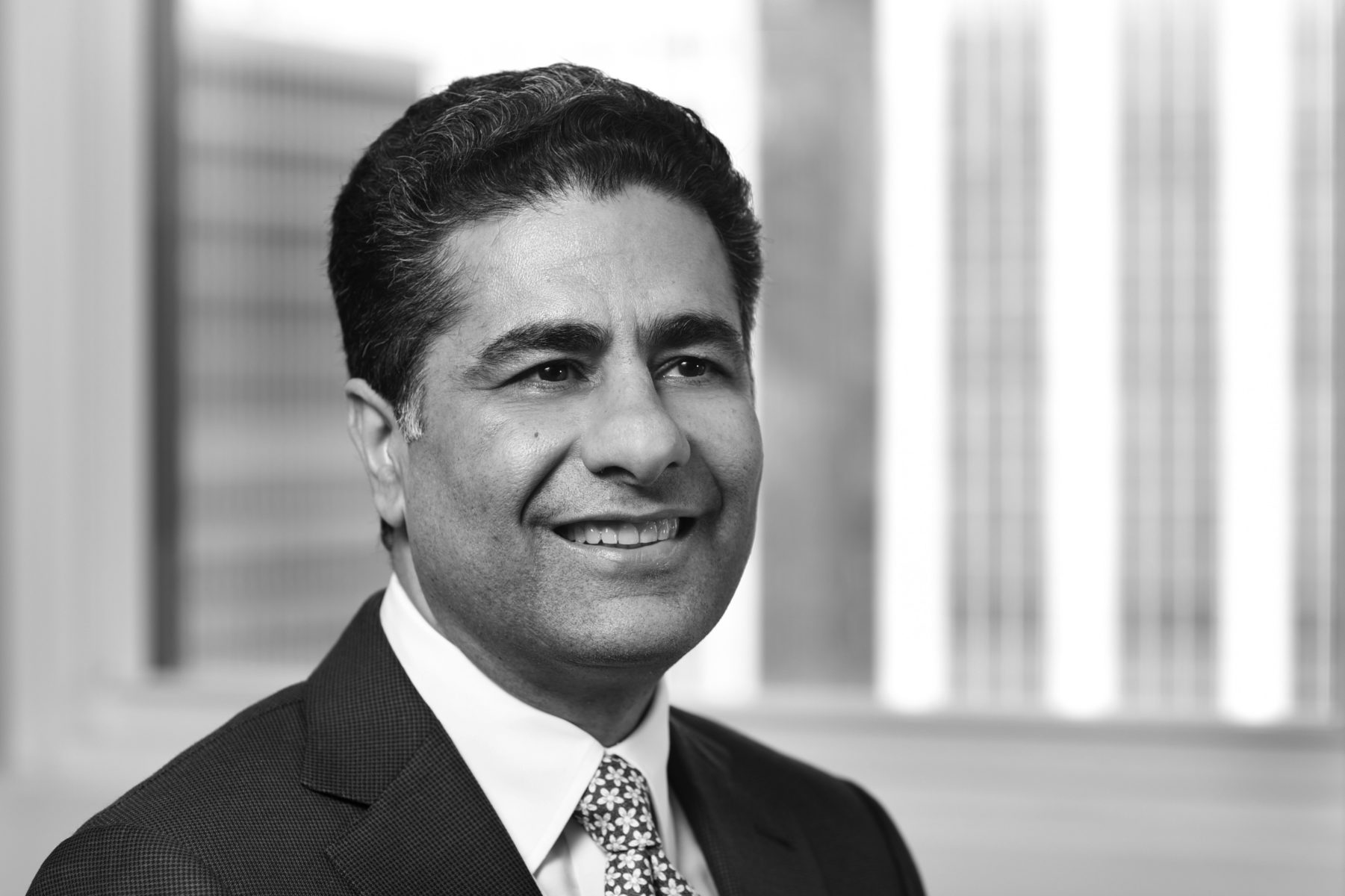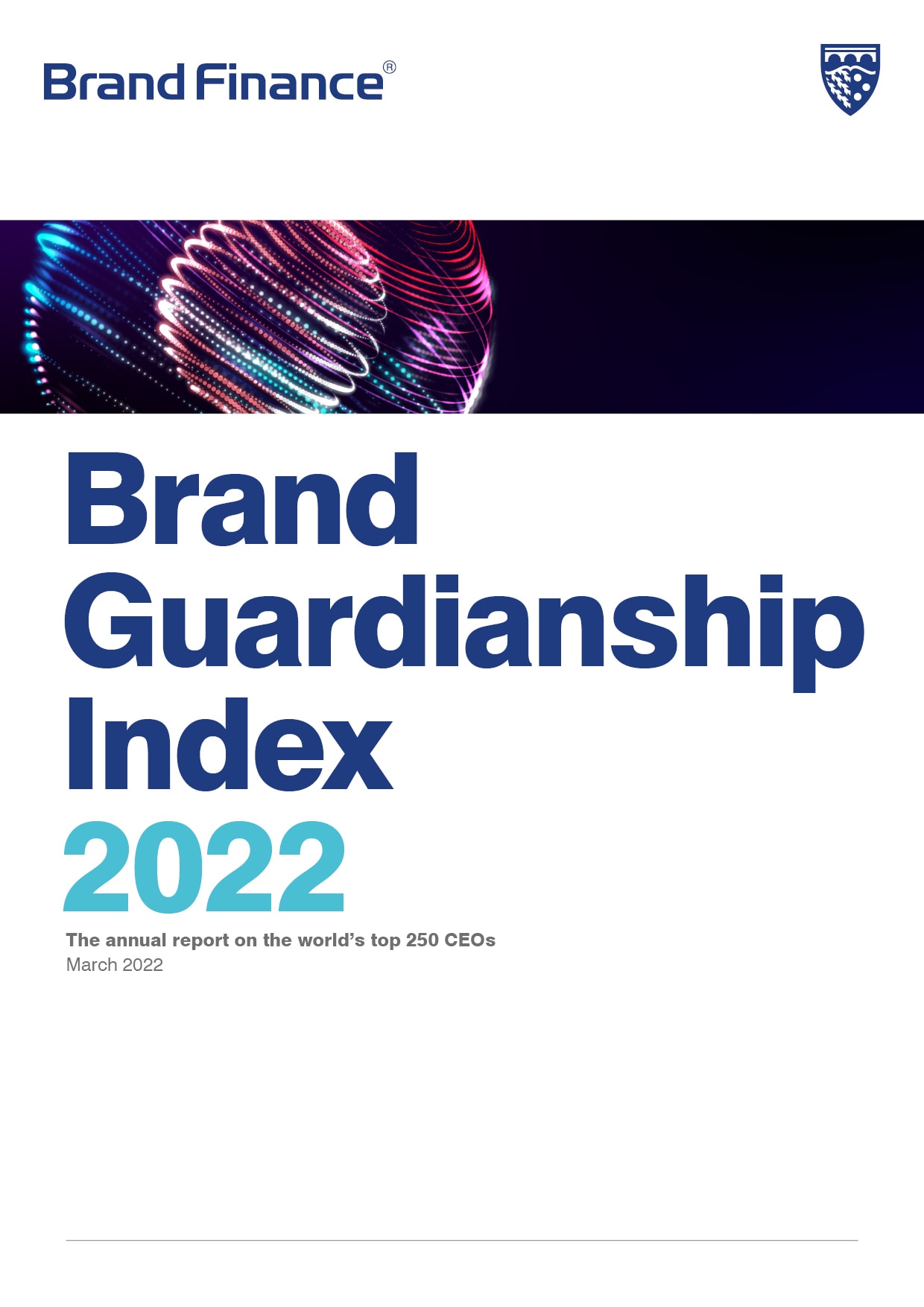This interview was originally published in the Brand Guardianship Index 2022 report.

CEO, Deloitte
In the years I’ve worked with business leaders around the world as the CEO of Deloitte Global, I’ve seen time and again: the leaders best prepared for the future are those who understand that the future is not pre-ordained.
From the continuing impact of COVID-19 to the growing threat of climate change, from increasingly complex technologies to exceedingly volatile supply chains, from changing employee demands to heightening competition—the challenges affecting business are as numerous as they are unpredictable.
Guiding organizations through this era of unprecedented volatility and complexity is the single most important job CEOs now have. And it requires reconciling seemingly contradictory leadership imperatives. The CEOs who lead their companies into the future must be simultaneously globally minded and community-oriented; adaptable and stable; driven by purpose and profit; masters of hard and soft skills; leaders and listeners.
Be globally minded—yet community oriented
[Today/this week/this month], Brand Finance released their 2022 Brand Guardianship Index, which tracks the qualities that make CEOs the best possible stewards of their organizations. The top driver of CEO reputation? Being recognized as a global CEO.
This is no surprise. As supply chains span the world, technologies tighten intercultural connections, and crises transcend borders, global perspective is required to run virtually any organization. But so too is staying connected at the local level.
To effectively lead a global organization — and take on global challenges — you have to stay close to thecommunities where your people live and work. Creating change globally has to start locally with the people who understand the nuances of the issues in their own communities.
As an example, one of Deloitte’s chief economic concerns is the fact that millions of individuals are being left behind in the Fourth Industrial Revolution. With that in mind, we launched WorldClass, a commitment to improve the lives of 100 million people through education and skill-building by 2030. Clearly a global issue, but also one that is going to look different in every community.
In India, one in three women over the age of 15 are illiterate—and thus often kept out of a rapidly developing economy. As such, we are focusing Deloitte’s efforts in India specifically on improving access to education and opportunity for 50 million women and girls.
In China, people have moved to the cities as the country has industrialized, leaving millions of children behind. As such, Deloitte’s commitment in China is focused on helping to get those children the schooling they need to reach their full potential.
In Papua New Guinea, people working in some trades, like seaweed farming, are being exploited because they don’t have a complete picture of the value of their work. As such, Deloitte is working to empower them to advocate for what they deserve.
The beauty of this approach is that in every community, Deloitte professionals who volunteer under the umbrella of WorldClass can create solutions to a vast global challenge—but in ways that meet the specific needs in their local communities.
Change with the times—yet remain a beacon of stability
In recent years, business leaders have been inundated with warnings about the importance of adaptability – with good reason.
Since the inception of the Fortune 500, only ~10% remain from the original list. The ones that have survived amid rapid globalization and technological disruption have done so by continuously evolving their strategies to fit with the changing times. So yes, adaptability is key to success. But there’s more to it than that.
Stakeholders also look to leaders to provide continuity and stability when much of everything else is in flux. Indeed, Brand Finance found that the second biggest driver of CEO reputation was having a strong strategy and long-term vision. And I would add, the ability to execute and deliver tangible results.
I believe the key to that long-term vision is purpose—having a reason to exist that transcends every day demands and provides a north star to follow when next steps are unclear. In many ways, purpose can both provide stability and drive change by pointing companies in new directions while providing guiderails for getting there in ways that preserve what makes the organization great.
Be purpose and profit driven
Now, to some, being driven by purpose stands in opposition to being driven by profit.
For decades, the prevailing business doctrine was that companies should be driven solely by producing the maximum profit for their shareholders, and that confusing this goal with a broader societal “purpose” simply wasn’t good business practice.
But recently, Deloitte and other leading analysts have produced ample research proving that committing to a broad societal purpose is, in fact, essential to long-term, sustainable profitability.
Purpose-driven companies grow, on average, three times faster than their competitors—and see higher market share gains. That’s in part because these companies report 30% higher levels of innovation and 40% higher levels of workforce retention than their competitors.
It’s also because customers are attracted to purpose-driven companies. Two thirds of consumers around the globe now “buy on beliefs”— taking the social impact a business makes into account when choosing where and what to buy. No surprise then that Brand Finance found demonstrating “social and environmental leadership” to be the third biggest driver of CEO reputation. Deloitte is a case in point. As a purpose driven organization, we have grown at market leading rates whilst giving back to the communities where we live and work at profession-leading rates. For Deloitte professionals, this equates to doing the right thing but also the right business thing.
Exhibit hard skills while leading with soft skills
In an increasingly digitized world, the focus on training and development has centered on STEM and developing leaders with the hard skills and technological savvy to transform business. And indeed, it’s appropriate that we call these “hard skills,” because they are the foundation — the base of expertise that any leader will need to run a large organization in the 21st century.
Soft skills, however—like the ability to build and maintain positive, constructive, mutually beneficial relationships, or to communicate clearly through challenging times—are what separate the good leaders from the great ones.
These are the skills that make all the difference when it comes to navigating global challenges – challenges that require working closely with regulators, communicating impact to the public, and keeping employee morale high. The pandemic has been a powerful reminder of just how critical those skills are.
One study found that the pandemic accelerated companies’ digital transformations by six years, on average. CEOs could not lead this change without a profound understanding of current and future technologies. Yet, the CEOs who not only survived but thrived throughout this period of upheaval were those who clearly communicated their vision for keeping their organizations on track as society transformed. By maintaining positive relationships with their people, they kept them energized, engaged, and retained through the health crisis and, even now, through the Great Resignation.
Know when leading means listening
Finally, we come to what I believe is one of the most important skills a CEO can have in today’s world: knowing when to talk and when to listen. This is a skill that has served me well throughout my career – most recently while helping to shape Deloitte’s commitment to addressing the climate crisis.
We knew from the outset that making meaningful, measurable changes meant we had to make commitments that would transform the way we do business: cutting our business travel emissions in half, sourcing 100% renewable energy for our buildings, engaging with suppliers to help them set emissions reductions goals, and more. But when we talked with our people, we heard that they also cared about and believed deeply in their own individual power to be part of that change.
Guided by their passion, we launched a WorldClimate learning program for all 350,000 Deloitte professionals globally that culminates in a tailored action plan to help Deloitte professionals reduce individual climate impact.The response has been overwhelming.
Listening to our people revealed an opportunity to lead them in unified action against one of the greatest challenges of our time.
Conclusion
Globally, trust in leaders and institutions is in freefall. Fifty seven percent of people believe government leaders are misleading the public with false statements. Trust in news media has plummeted to a record low of 51 percent.
Yet people around the world report rising trust in their employers, more so than government officials or media experts. Business remains the most trusted institution—and the only institution seen as both ethical and competent.
More than ever, employees are turning to CEOs for guidance on how to be valuable members of both their organizations and the global community.
CEOs today have an opportunity to build on this opportunity and strengthen their roles as leaders in shaping the future. If they can demonstrate the ability to act both globally and locally, to be flexible and stable, to value both purpose and profit, to draw on hard and soft skills, and to understand when they should lead and follow, they can guide people through complexity with clarity and grace—and be the kind of leaders who are trusted to take their organizations into the future.

